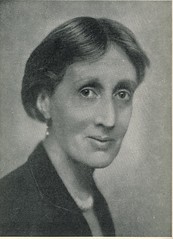[Contributing author Rosanne Dingli is experiencing technical difficulties, possibly as a result of inadvertently downloading a virus while watching the popular though highly illegal Author Deathmatch web-TV show. This is an encore performance of her first post for Indies Unlimited. — ed.]
Fiction is a funny thing … that fiction authors take very seriously. So seriously, in fact, that it can take over their lives, and depress, frighten, enthuse, or gladden them. Fiction has the power to mystify its creators; dash their hopes, fill them with wonder, and douse them with the kind of despondency that is hard to shake.

For some it is storytelling; for others, a tool to incorporate who they are as people with what the world would like to hear from them. For a few it is a curse; for many, the only joy in their lives. Fiction, if it is in your life, can be the source of the whole gamut of emotions. It is a rare author who has no deep emotive life. There seems to be a prerequisite to be able to feel events, scenes and snatches from real life in a sensitive way, if one is to turn them into stories that will move readers. One must be capable of melancholia and ecstasy. Otherwise, how can one create them, to be felt by others? All stories are to do with life. Even the ones built on the most outlandish science, on fantasy, on improbability, need to be anchored in some way to human life as we know it. In fact, it is rather hard to move so far away from life to write something that is beyond the ken of even the most intrepid reader with the wildest imagination.
The authors who gave us the most amazing imaginings of their own, such as Jules Verne, Isaac Asimov and Robert A Heinlein, impress with the humanity of the emotion aroused by some aspects of their fictions, even when telling a story distanced by eons from what humans are used to. The noted critic Marie-Laure Ryan observes that the fictional world and the actual world are inextricably related. What attracts us to stories, and what keeps fiction up there as one of the most sought-after means of distraction from the miserable and the mundane, a means of entertainment and recreation, is the ability to relate, compare, and distance ourselves from our apparently small and confusing lives, and approach fictional ones that are just as perplexing and confusing… but not our own. What a relief to be able to sort out the fate, watch the dilemmas, and rejoice at the endings of the life of a being outside our dominion.
 Protagonists are surrogates, built on the hopes and fears of authors who find escape in the telling. Their stories, however, are like spider webs, attached to life at all four corners, as the novelist with the most to feel, and the most to fear – and the most to be joyous about – let us know. Virginia Woolf‘s feelings are no news to anyone who has started a novel, or slapped together the pages of a notebook in relief at the conclusion of the fifth draft. Her watershed novels are all about life, with recognizable people from her circle of acquaintance making entrances and exits.
Protagonists are surrogates, built on the hopes and fears of authors who find escape in the telling. Their stories, however, are like spider webs, attached to life at all four corners, as the novelist with the most to feel, and the most to fear – and the most to be joyous about – let us know. Virginia Woolf‘s feelings are no news to anyone who has started a novel, or slapped together the pages of a notebook in relief at the conclusion of the fifth draft. Her watershed novels are all about life, with recognizable people from her circle of acquaintance making entrances and exits.
Although we do not all create protagonists in that way, we cannot afford to allow our fiction to detach from the spiderweb of life from any of its corners without the risk of losing readers. On the strength of our fiction, writers like us are granted permission to present our angle on life to an audience. We are allowed our own entrances and exits into minds open and welcoming – for the greatest part. It is a privilege not to be taken lightly.
I have been invited to write about writing, and the writing life, by Indies Unlimited. It is flattering and frightening, all at once. I can’t write a bit of fiction, post it, and be done with it. I need to entertain and edify with real stuff, and abandon that friendly human spiderweb whose stickiness and familiarity is comforting. I might be at a loss to find relevant topics, so by all means leave comments that might spur me onward. Is there anything about the writer’s life that I am supposed to know about that you care to see here? Ask questions. Demand explanations.
References:
Ryan, Marie-Laure (2006). Avatars of story. Minneapolis: University of Minnesota Press
Woolf, Virginia (1989) A Room of One’s Own. New York: Harcourt Brace & Co
* * * * *
ROSANNE DINGLI, author of Death in Malta and According to Luke, has written quite a bit of fiction since 1985. Some of it is collected in seven volumes of stories that were awarded, commended and published in anthologies, journals, supplements and magazines.
For more about Rosanne Dingli, visit her website , or her blog. 

